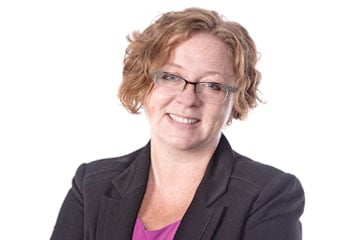
A recent case has changed the laws in Ontario around adoption after two women successfully challenged the 2017 changes to the provincial Child, Youth and Family Services Act.

A recent case has changed the laws in Ontario around adoption after two women successfully challenged the 2017 changes to the provincial Child, Youth and Family Services Act.
In S.M. (Re), 2018 ONSC 5145, two friends who lived together wished to adopt a child, but they were barred from doing so under the act.
The Ontario Superior Court of Justice subsequently ruled that the definition of “spouse” within the act is discriminatory for those seeking to adopt but who are not in a spousal relationship.
Marta Siemiarczuk, a partner and head of the family law group at Nelligan O’Brien Payne LLP in Ottawa and counsel for the two applicants seeking to adopt in this case, says the decision helps to expand the concepts of family and parenting, both legally and socially.
“From a social perspective, that concept has been expanding at a much faster pace than the law has,” says Siemiarczuk.
“This [decision] catches up with what society is doing, and it’s recognizing that platonic co-parenting is something real, it exists and it doesn’t make for any less of a family than non-platonic co-parenting.”
In S.M. (Re), Ontario Superior Court Justice Victor Mitrow ruled that the words “who are spouses of one another” in clause 199(4)(b) of Child, Youth and Family Services Act be struck down with respect to the definition of adoption in the legislation.
Mitrow’s ruling means that with the language around spouses in the legislation struck down, there is nothing else that the provincial government needs to do to comply with the act, says Siemiarczuk.
She says the decision was not appealed, even after a change of provincial government, and the deadline to appeal has now passed.
“I doubt any further amendments [to the act] are going to happen as a result of this decision, because it just strikes out the offending language,” says Siemiarczuk.
Nigel Macleod, strategic counsel with AGB Lawyers PC in Ottawa, who served as Crown counsel in the Office of the Children’s Lawyer for more than 20 years, who was not involved in the case, says the decision presents a thoughtful way to develop the legal understanding of how Canadians can create families in different ways as guaranteed by the Charter.
Macleod points to Mitrow’s passage in the ruling that says the limitation on non-spouses adopting was “being imposed arbitrarily.”
“While joint applicants who are spouses may have a stable relationship, that is not always the case. The exclusion of non-spousal couples is indicative of a presumption that they do not or are not likely to have stable relationships,” wrote Mitrow.
Macleod says the ruling struck down the offending language around spouses under the Child, Youth and Family Services Act with “surgical precision” without affecting statutory or historical continuity in the rest of the act.
The ruling does not detract from the new CYFS legislation, which Macleod calls a significant step forward for both Ontario and the world.
Macleod says SM (Re) is a reminder that “the law is living.”
“Fortunately, in Canada, we have an alert and apolitical judiciary who can actively participate in these inevitable course corrections,” says Macleod.
“We strive to fully support new parenting combinations [that] embody the age-old attributes of love, patience and stability in the best interests of our Canadian children.”
Siemiarczuk says that, while there is still work to do by family lawyers in the area of platonic co-parenting, the decision by the court is a step toward full recognition.
In particular, in cases where there is a biological mother with a platonic friend who wishes to get a declaration to be legally a co-parent, the new Ontario legislation does not allow the platonic friend to get such a declaration, says Siemiarczuk.
While S.M. (Re) allows for adoption from a Children’s Aid Society, the legislation doesn’t allow for platonic co-parenting adoption that isn’t through a society, says Siemiarczuk.
“What my case has done now is to recognize . . . that you don’t have to be having sex to become parents,” says Siemiarczuk.
“You can become parents and, after a child is born, you don’t have to have this pre-conception intention. For my practice, hopefully, we get another situation where we can challenge the family adoption provisions of the act to eliminate the requirement to be either spouses or blood relatives to adopt.”
Tanya Davies, of Davies Law Firm in Ottawa, says the case provides a useful, well-reasoned Charter analysis in striking down the definition of “spouse” in the act.
“I see the decision as being very much focused on the end result — to broaden the pool for parties seeking to adopt children and youth who are Crown wards,” says Davies.
Davies says the “infringement of s. 15 rights was not saved by s. 1 of the Charter in this case.”
“Does this mean that other legislation, which includes a more, shall we say ‘traditional’ definition of spouse as ‘a couple in a conjugal relationship,’ can be successfully challenged? I don’t think that will happen,” she says.
Davies adds that S.M. (Re) had a particular fact situation and that s. 1 of the Charter will keep other Charter challenges of discrimination by the definition of “spouse” in check.
Siemiarczuk says the Canada Revenue Agency is going to have difficulty figuring out how to deal with tax credits and the Canada Child Benefit as a result of this decision.
“I know my clients have already had some issues with what to apply for and how,” says Siemiarczuk.